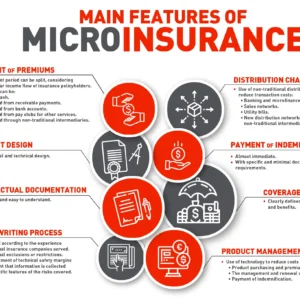
Outline:

I. Introduction
- The Importance of Renters Insurance
- The Hidden Benefits of Renters Insurance
- Why Most Tenants Aren’t Aware of These Lesser-Known Protections
II. Common Misconceptions About Renters Insurance
- A. Renters Insurance is Only for Personal Property
- B. Landlord’s Insurance Covers Everything
- C. Renters Insurance is Too Expensive
III. Understanding the Lesser-Known Benefits of Renters Insurance
- A. Loss-of-Use Coverage
-
- What Is Loss-of-Use Coverage?
-
- How It Works and Why You Need It
-
- B. Off-Premises Theft Protection
-
- Coverage Beyond Your Apartment
-
- When Off-Premises Theft Happens
-
- C. Personal Liability Protection in a Digital Age
-
- Liability for Injuries or Damages
-
- Protection Against Online Threats and Digital Liabilities
-
IV. Real-Life Examples of Renters Insurance in Action
- A. Loss-of-Use in a Fire or Flood
- B. Off-Premises Theft at a Coffee Shop or Gym
- C. Personal Liability for a Visitor’s Injury or an Online Mishap
V. How Renters Insurance is Evolving in the Digital Age
- A. Coverage for Digital Assets and Cyber Attacks
- B. The Need for Broader Liability Protection with Increased Online Interactions
- C. The Future of Renters Insurance: Adapting to New Risks
VI. How to Choose the Right Renters Insurance Policy
- A. Assessing Your Needs and Risks
-
- Evaluating Personal Property and Off-Premises Assets
-
- Considering Digital Risks and Online Liability
-
- B. Comparing Policies: What to Look for
-
- Identifying Essential Coverage Options
-
- Selecting the Right Deductible and Limits
-
- C. Shopping Around for Renters Insurance Providers
-
- Importance of Researching Different Companies
-
- Finding the Best Value for Coverage
-
VII. Conclusion
- Recap of Hidden Benefits
- Why Renters Insurance is a Must-Have
- Final Thoughts: Protecting Yourself in the Modern World
VIII. FAQs
- What does loss-of-use coverage in renters insurance cover?
- Does renters insurance cover theft when I’m not at home?
- How does renters insurance cover online liability?
- What are the differences between basic renters insurance and digital liability coverage?
- How much does renters insurance typically cost for comprehensive coverage?
The Hidden Benefits of Renters Insurance Most Tenants Don’t Know About – Exploring Lesser-Known Protections Like Loss-of-Use Coverage, Off-Premises Theft, and Personal Liability in a Digital Age

Renters insurance is often one of the most underrated aspects of renting a home. Many tenants view it simply as a way to protect their personal belongings from theft or damage. However, renters insurance offers much more than that. In fact, there are several lesser-known benefits that could significantly impact your life, especially in today’s digital age. From loss-of-use coverage to off-premises theft and personal liability protection, renters insurance can provide critical safeguards for tenants who may not even realize they need it.
The Importance of Renters Insurance
Renting a home comes with its own unique set of challenges, and while your landlord may have insurance to cover the building’s structure, it’s important to protect your personal belongings and your liabilities. Renters insurance offers coverage that ensures you’re not left vulnerable to the unexpected—whether it’s a flood, theft, or an unfortunate accident that occurs within or outside your rental unit.
The Hidden Benefits of Renters Insurance You Might Not Know About
Renters insurance is often associated with basic coverage for personal property, but did you know that there are several hidden benefits that extend far beyond this? These lesser-known protections can significantly enhance your peace of mind and provide financial security in unexpected situations. While it’s easy to assume that renters insurance is simply a way to protect your furniture and electronics, the truth is that it can offer a wide array of additional benefits that many tenants overlook. Let’s dive into these hidden gems.
1. Protection for Temporary Living Expenses (Loss-of-Use Coverage)
What Is Loss-of-Use Coverage?
Loss-of-use coverage, or additional living expenses (ALE), is one of the most valuable yet underappreciated aspects of renters insurance. If your rented home becomes uninhabitable due to a covered event—such as a fire, severe water damage, or natural disaster—loss-of-use coverage will cover the cost of temporary accommodations and necessary living expenses.
How It Works
Imagine you’re living in an apartment, and a fire severely damages the building. You are unable to stay in your home while repairs are made. Without loss-of-use coverage, you would have to cover the cost of a hotel or temporary rental on your own, which can quickly add up. However, with this coverage, your renters insurance will reimburse you for the cost of temporary housing, meals, and other living expenses.
This protection is particularly valuable for people who live in areas prone to natural disasters, such as floods, earthquakes, or hurricanes. Even a short-term displacement can be financially draining, and loss-of-use coverage ensures that you’re not left with a hefty financial burden during such times.
2. Off-Premises Theft Coverage
What Is Off-Premises Theft?
Off-premises theft coverage is often overlooked by tenants who think that renters insurance only covers items within their home. In reality, many renters insurance policies extend their protection to belongings that are stolen while you’re away from home—whether you’re on vacation, at a coffee shop, or working out at the gym.
How It Works
Let’s say you’re at a coffee shop with your laptop, and you step away for a moment only to return and find that your laptop has been stolen. With off-premises theft coverage, your renters insurance will help replace the stolen items, as long as they are covered under your policy.
This benefit is particularly useful in our increasingly mobile society. People regularly take their valuables with them to work, school, or social gatherings. Off-premises theft protection ensures that you aren’t financially responsible for replacing valuable items simply because they were stolen outside your home.
3. Personal Liability Protection for Accidents at Home (and Beyond)
What Is Personal Liability Protection?
Personal liability coverage is a crucial component of renters insurance that protects you if someone is injured while visiting your rental unit or if you accidentally damage someone else’s property. For example, if a guest slips and falls in your home, your liability coverage will pay for their medical expenses and any legal fees if they decide to sue.
How It Works
Liability protection isn’t just limited to accidents that occur in your home. If you’re out and about and accidentally cause harm to someone, your liability protection might still apply. For instance, if you cause damage to someone’s property while visiting their home (e.g., knocking over a valuable item), your renters insurance may help cover the costs.
In the digital age, liability protection has expanded to cover online risks, too. If you are involved in an online incident—whether it’s a defamation lawsuit from a social media post or an accidental breach of someone’s privacy—personal liability coverage may help cover the costs of legal defense and settlement.
4. Protection Against Identity Theft
What Is Identity Theft Protection?
Some renters insurance policies offer coverage for identity theft, which is an increasingly important issue in the digital world. If someone steals your personal information, such as your Social Security number or credit card details, this coverage can help you recover your identity and minimize the financial damage.
How It Works
Identity theft protection can cover a variety of expenses that arise from identity theft, including legal fees, lost wages, and the costs of restoring your credit. For example, if a thief opens a credit account in your name, your insurance may help cover the legal costs associated with clearing your name and dealing with the financial fallout.
Since identity theft is a growing concern in our online world, having this protection in place provides an added layer of financial security. If your personal data is compromised, this benefit can save you from enduring the financial and emotional stress that often accompanies identity theft.
5. Coverage for Temporary Repairs (Emergency Repairs) After Damage
What Is Emergency Repair Coverage?
Renters insurance can sometimes include emergency repair coverage, which helps cover the cost of quick fixes to prevent further damage. For instance, if a storm causes a window to break or a pipe bursts, emergency repairs can prevent the issue from escalating into a more costly and damaging problem.
How It Works
If you experience damage that could worsen without immediate attention—like a leaking roof or broken window—emergency repair coverage can help pay for temporary repairs until a professional can fix the issue. This can prevent your home from becoming uninhabitable and stop the damage from spreading to other areas of your rental unit.
6. Protection for Your Pets (Pet Liability)
What Is Pet Liability Coverage?
Many renters don’t realize that their renters insurance can protect them if their pet causes harm to someone else. If your pet bites or injures someone—whether it’s a neighbor or a visitor—pet liability coverage will help pay for medical expenses and legal fees associated with the injury.
How It Works
Pet-related incidents are not uncommon, and renters insurance can provide valuable protection in such situations. If your dog, for example, bites a guest in your apartment and they decide to sue, your renters insurance will cover the cost of legal defense and any settlements.
Some policies may even offer coverage for damage caused by your pet to other people’s property, such as if your pet damages a neighbor’s belongings. Pet liability coverage helps you avoid the financial strain of these unpredictable situations.
7. Protection for Expensive or Rare Items (Scheduled Personal Property)
What Is Scheduled Personal Property Coverage?
Scheduled personal property coverage allows you to insure high-value items (such as jewelry, antiques, or expensive electronics) for their full value. This type of coverage goes beyond the typical personal property limits in standard renters insurance policies, ensuring that these high-cost items are fully protected.
How It Works
If you own valuables that exceed the standard coverage limits of your renters insurance policy, scheduled personal property coverage lets you add them to your policy for an additional premium. For example, if you own a piece of fine jewelry worth $5,000, scheduled personal property coverage ensures that it’s covered for its full value in case of theft or damage.
8. Temporary Relocation Assistance (In Case of Evacuation)
What Is Temporary Relocation Assistance?
Some renters insurance policies offer temporary relocation assistance in the event of an evacuation due to dangerous conditions, such as a gas leak or wildfire. This can help you cover the cost of finding a safe place to stay while the danger is resolved.
How It Works
If you are forced to evacuate your home due to an emergency, temporary relocation assistance will help cover the cost of staying in a hotel or another temporary housing situation. This benefit ensures that you aren’t left stranded without financial assistance during an evacuation.
9. Legal Assistance for Renters (Legal Expenses Coverage)
What Is Legal Expenses Coverage?
Some renters insurance policies provide legal expenses coverage, which can help cover the cost of legal representation if you become involved in a legal dispute related to your rental property. This might include issues with your landlord or conflicts with neighbors.
How It Works
If you find yourself facing a lawsuit or legal action, having legal expenses coverage can help cover the cost of hiring an attorney or paying court fees. This coverage can be crucial in situations where legal disputes arise over things like the return of your security deposit, damage claims, or disputes over lease terms.
Renters insurance is much more than just a safety net for your personal belongings. With benefits like loss-of-use coverage, off-premises theft protection, personal liability coverage, and more, renters insurance offers comprehensive protection against a wide range of unexpected events. Many of these benefits are hidden beneath the surface, but they can provide invaluable financial assistance during some of life’s most stressful moments. Understanding the full scope of coverage available to you as a tenant can give you peace of mind, knowing that you’re protected against both physical and digital risks in today’s ever-changing world.
Why Most Tenants Aren’t Aware of These Lesser-Known Protections
Many tenants are either unaware of these additional protections or simply don’t fully understand their value. Often, renters assume that their landlord’s insurance will cover everything, or they mistakenly believe that renters insurance is unnecessary. In reality, these hidden benefits can make all the difference in times of need, offering protection against more than just theft.
Common Misconceptions About Renters Insurance
A. Renters Insurance is Only for Personal Property
A common misconception is that renters insurance only covers the items inside your home—such as furniture, electronics, and clothing. While this is true for personal property coverage, renters insurance offers much more, including liability coverage and loss-of-use benefits, both of which provide essential financial protection in case of unforeseen events.
B. Landlord’s Insurance Covers Everything
Another common misunderstanding is that the landlord’s insurance policy will cover the tenant’s belongings and liabilities. However, this is not the case. Landlord insurance typically only covers the structure of the building, leaving tenants responsible for protecting their personal property, liability, and additional living expenses.
C. Renters Insurance is Too Expensive
Many tenants avoid purchasing renters insurance because they believe it’s too costly. However, renters insurance is generally affordable—often costing less than a dollar a day—and provides valuable protection that can save you thousands of dollars in the event of a disaster.
Understanding the Lesser-Known Benefits of Renters Insurance
A. Loss-of-Use Coverage
1. What Is Loss-of-Use Coverage?
Loss-of-use coverage, also known as additional living expenses (ALE), is a protection that many tenants don’t realize is included in their renters insurance policy. This coverage helps pay for temporary living arrangements if your rental unit becomes uninhabitable due to a covered event such as a fire, flood, or severe storm.
2. How It Works and Why You Need It
Imagine your apartment catches fire, and you are unable to stay there while repairs are being made. Without loss-of-use coverage, you would be responsible for finding and paying for a temporary living space. With this coverage, your renters insurance will cover the costs of a hotel stay, meals, and other necessary living expenses, alleviating the financial burden during an already stressful time.
B. Off-Premises Theft Protection
1. Coverage Beyond Your Apartment
Off-premises theft coverage protects your belongings even when they’re not inside your rented home. For example, if your phone is stolen while you’re at the gym or your laptop is taken during a vacation, off-premises theft protection will cover the loss.
2. When Off-Premises Theft Happens
This protection is essential for tenants who frequently travel, work remotely, or enjoy spending time outside their rental property. Many renters mistakenly believe that theft is only covered when it happens in their home, but off-premises theft coverage ensures your belongings are safeguarded wherever they go.
C. Personal Liability Protection in a Digital Age
1. Liability for Injuries or Damages
Personal liability protection within renters insurance covers you in case someone is injured in your home or if you accidentally damage someone else’s property. For example, if a guest slips and falls while visiting, or if you cause accidental water damage to a neighbor’s apartment, this coverage will protect you from the financial consequences.
2. Protection Against Online Threats and Digital Liabilities
In today’s digital world, personal liability protection in renters insurance also extends to online risks. If you cause harm to someone else online—whether through social media posts, email communications, or other digital activities—your renters insurance may offer coverage to protect you from legal fees or claims arising from these incidents. As our lives become more intertwined with digital platforms, this protection is becoming increasingly valuable.
Real-Life Examples of Renters Insurance in Action
A. Loss-of-Use in a Fire or Flood
Consider this: a tenant’s apartment building suffers severe water damage due to a burst pipe, rendering the unit uninhabitable. With loss-of-use coverage, the tenant is able to stay in a temporary living space while the building is repaired, with the insurance covering the cost of the new accommodations.
B. Off-Premises Theft at a Coffee Shop or Gym
Another scenario involves a tenant who goes to a coffee shop and leaves their laptop unattended for a moment, only to discover it has been stolen. Off-premises theft coverage would step in to replace the stolen item, saving the tenant from having to pay out-of-pocket for an expensive replacement.
C. Personal Liability for a Visitor’s Injury or an Online Mishap
A tenant invites a friend over for dinner, and during the evening, the friend trips over an extension cord and injures themselves. With personal liability protection, the tenant’s insurance covers the medical bills and legal costs associated with the injury, offering peace of mind in what could have been a financially devastating situation.
How Renters Insurance is Evolving in the Digital Age
A. Coverage for Digital Assets and Cyber Attacks
As technology continues to advance, renters insurance is evolving to cover new risks. Some policies now include protection for digital assets, including data recovery, personal information breaches, and cyberattacks. With the increasing prevalence of online threats, this type of coverage is becoming more relevant.
B. The Need for Broader Liability Protection with Increased Online Interactions
The digital age has increased the likelihood of liability issues arising from online interactions. Whether through social media or digital communication, renters insurance is adapting to provide broader coverage to protect tenants from these new forms of liability.
C. The Future of Renters Insurance: Adapting to New Risks
The future of renters insurance will likely include more tailored policies to meet the evolving needs of digital-savvy renters. As more aspects of our lives become connected to technology, insurers will continue to innovate to offer comprehensive coverage for new types of risks.
How to Choose the Right Renters Insurance Policy
A. Assessing Your Needs and Risks
1. Evaluating Personal Property and Off-Premises Assets
When choosing a renters insurance policy, consider the value of your personal property, both inside and outside your home. Do you travel frequently? Do you have high-value electronics that need protection? Understanding your needs will help you select the right level of coverage.
2. Considering Digital Risks and Online Liability
As digital interactions become more prevalent, it’s important to assess your exposure to online risks. Make sure your renters insurance includes personal liability coverage for online activities, as well as protection for your digital assets.
B. Comparing Policies: What to Look for
1. Identifying Essential Coverage Options
Not all renters insurance policies are created equal. When shopping for a policy, ensure it includes the essential coverage options like loss-of-use, off-premises theft, and liability protection.
2. Selecting the Right Deductible and Limits
Choose a deductible and coverage limits that align with your needs and budget. A higher deductible may lower your premium, but make sure you can afford to pay it if you need to file a claim.
C. Shopping Around for Renters Insurance Providers
1. Importance of Researching Different Companies
Different insurance providers offer different benefits and pricing, so it’s important to shop around. Look for companies with good customer service and positive reviews, and make sure they offer the coverage options you need.
2. Finding the Best Value for Coverage
Compare quotes from multiple insurance companies to find the best value. The lowest premium may not always be the best option, so weigh the cost against the coverage provided.
READ MORE: Understanding Tenant Insurance: Coverage and Benefits Explained
Conclusion
Renters insurance is not just about protecting your belongings; it’s about safeguarding your financial security in the face of unexpected events. With hidden benefits like loss-of-use coverage, off-premises theft protection, and digital liability coverage, renters insurance offers much more than many tenants realize. In today’s world, where digital risks are increasing, having comprehensive protection is more important than ever. Ensure that you choose the right policy to protect yourself, both in the physical and digital world.
FAQs
- What does loss-of-use coverage in renters insurance cover?
Loss-of-use coverage helps pay for temporary housing and living expenses if your rental becomes uninhabitable due to a covered event, such as a fire or flood. - Does renters insurance cover theft when I’m not at home?
Yes, off-premises theft protection covers your belongings even when you’re away from home, such as during a trip or while you’re at the gym. - How does renters insurance cover online liability?
Renters insurance may offer personal liability coverage for online risks, such as legal claims arising from online interactions, including social media posts and emails. - What are the differences between basic renters insurance and digital liability coverage?
Basic renters insurance typically covers physical property and liability, while digital liability coverage offers protection against online risks and cyberattacks. - How much does renters insurance typically cost for comprehensive coverage?
Renters insurance usually costs between $15 to $30 per month, depending on the coverage options, location, and the amount of personal property you need to insure.






